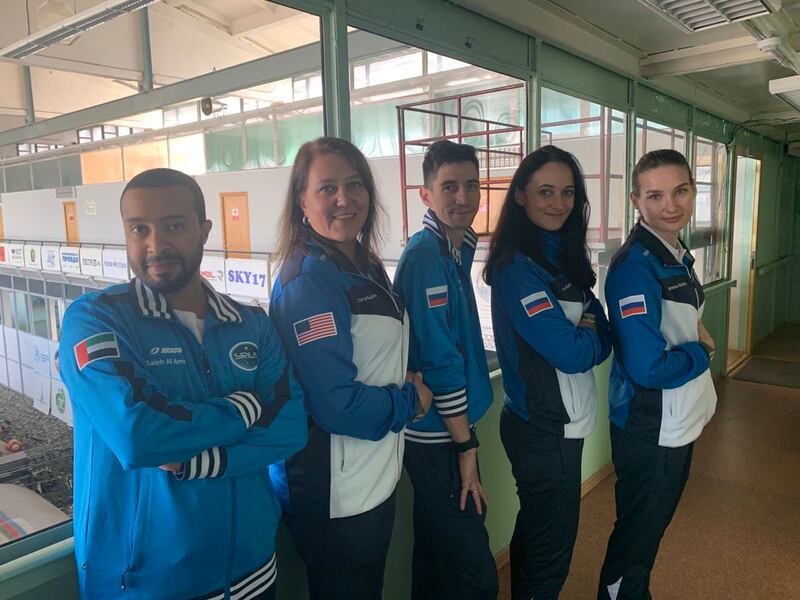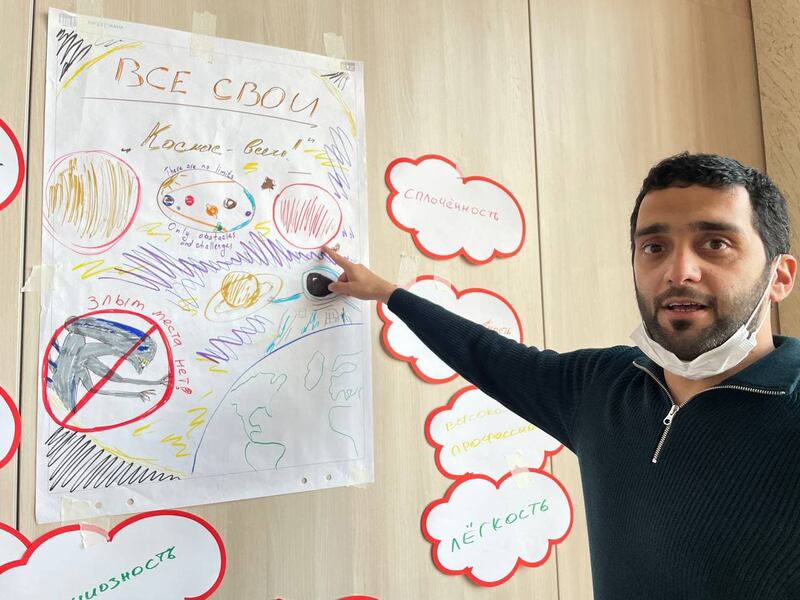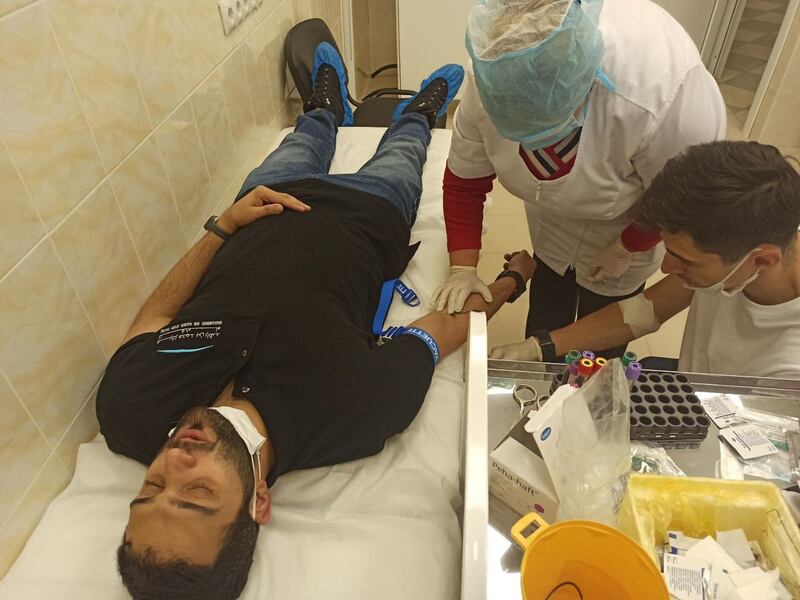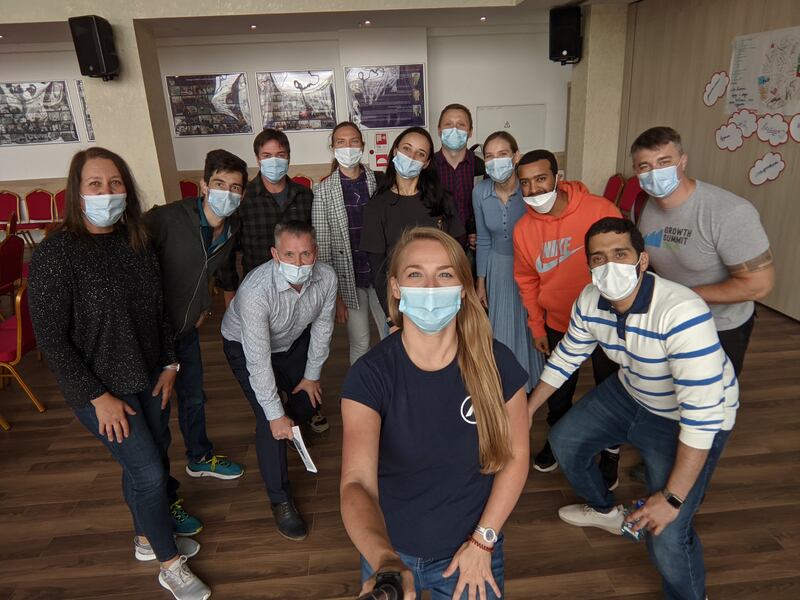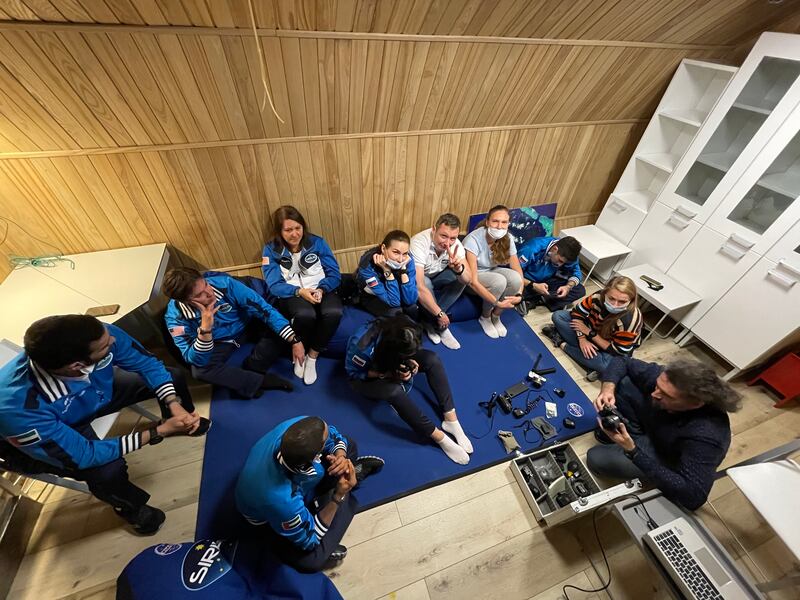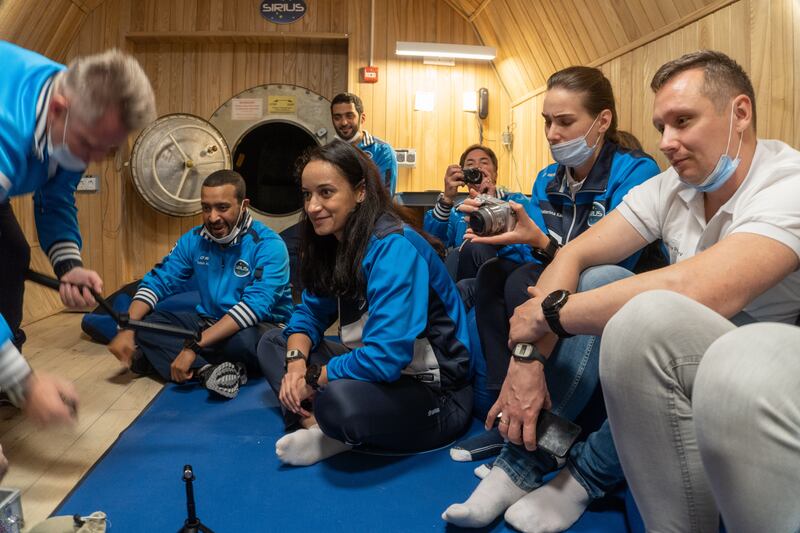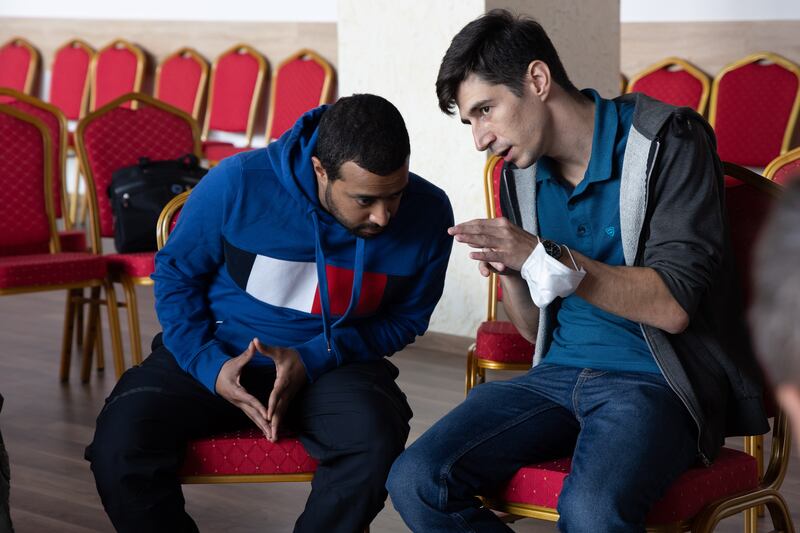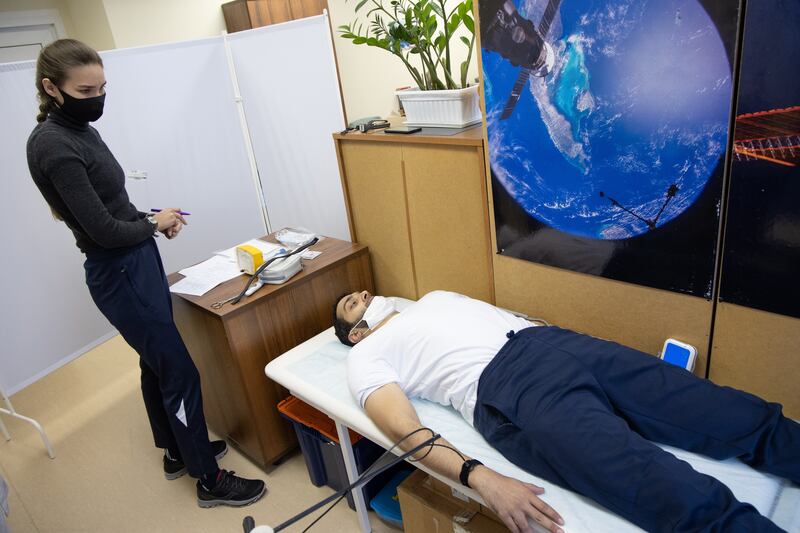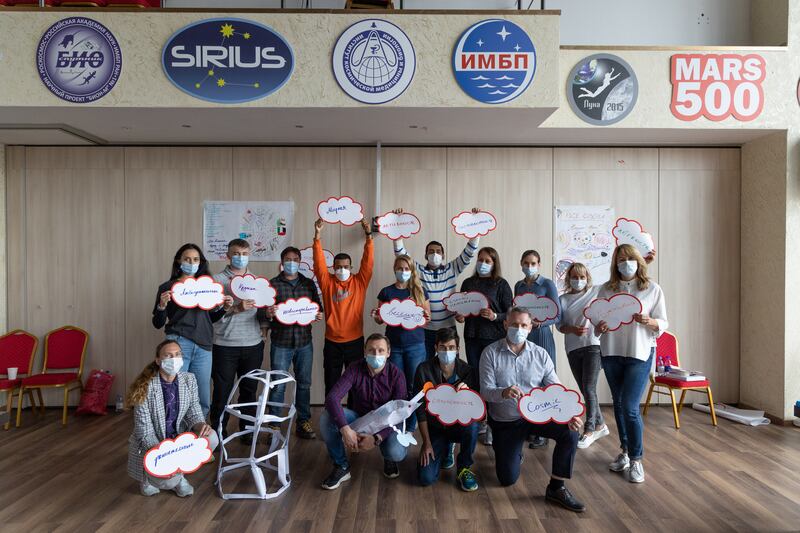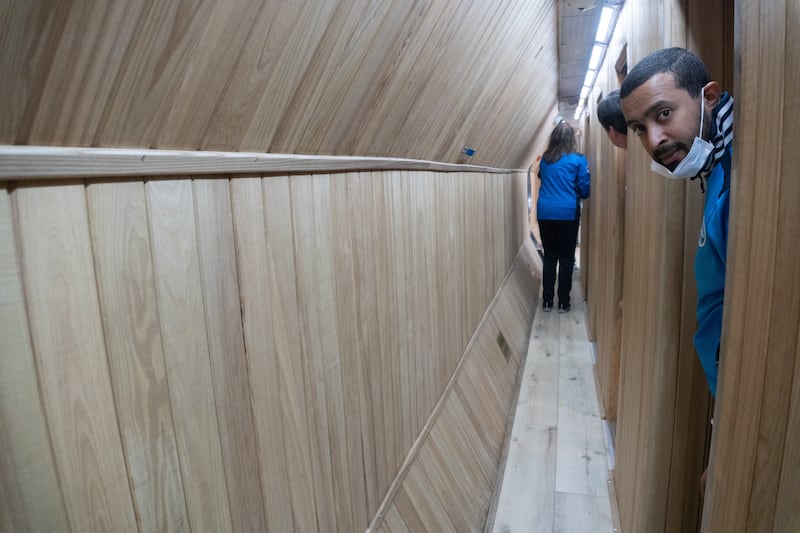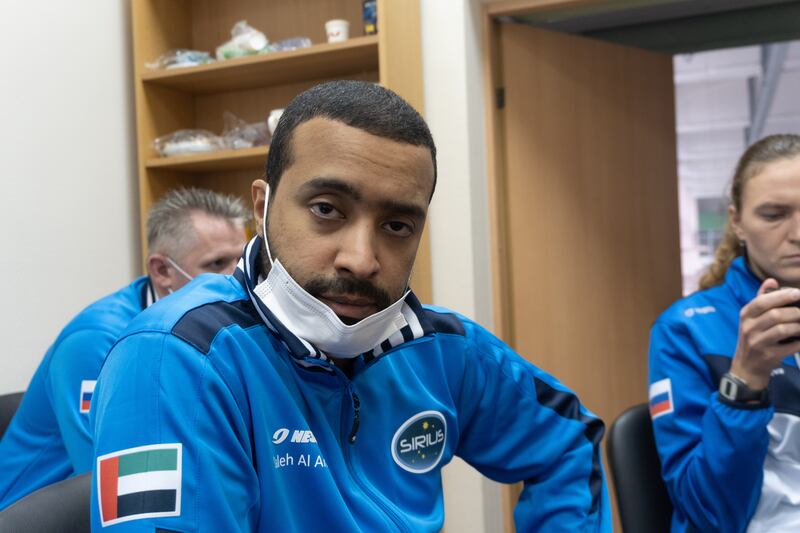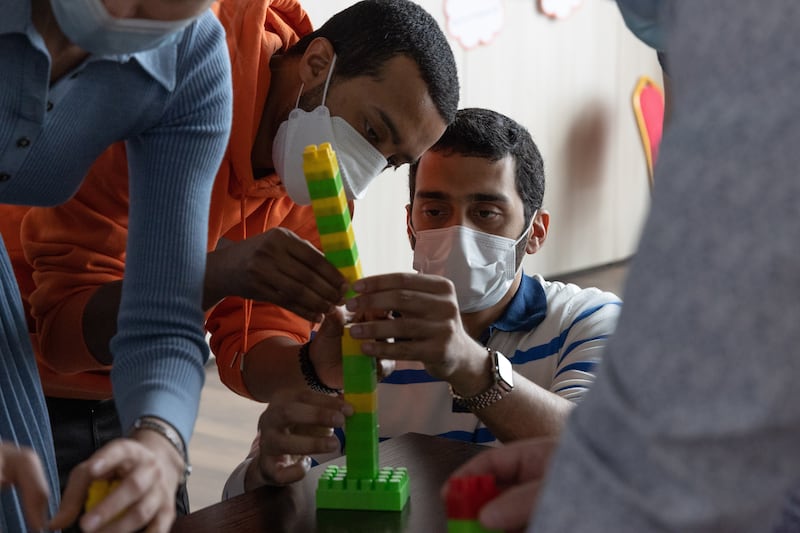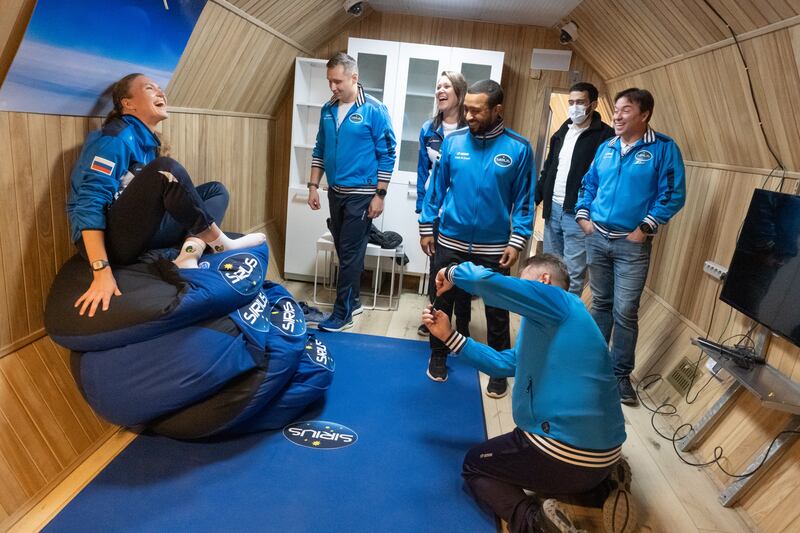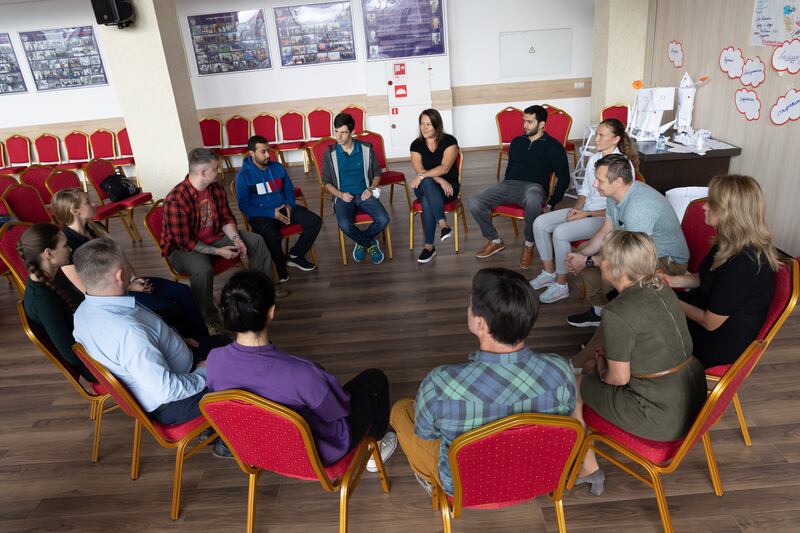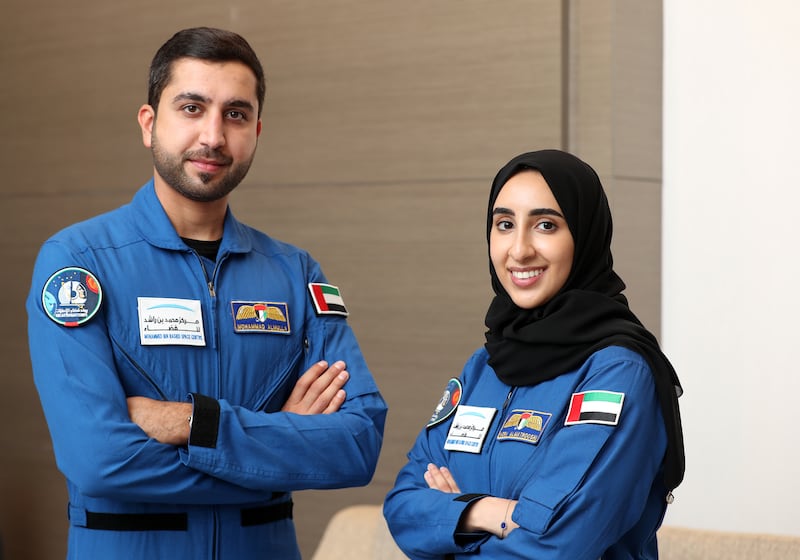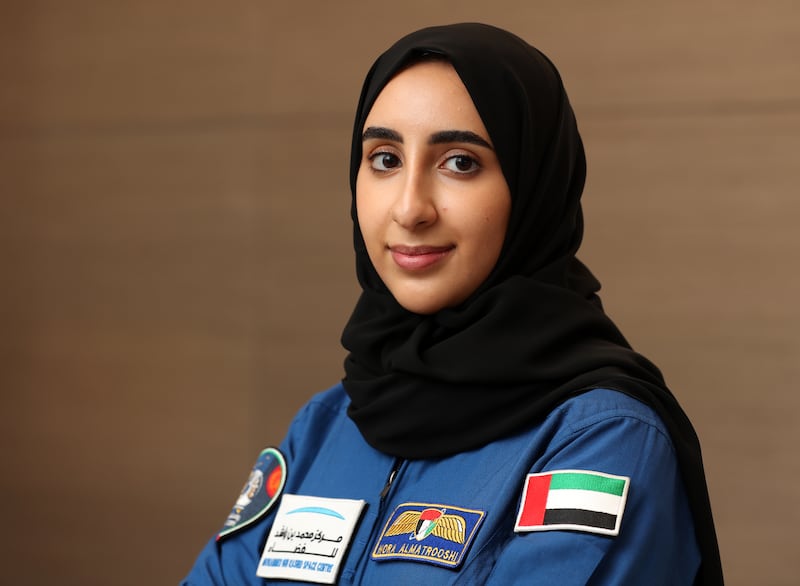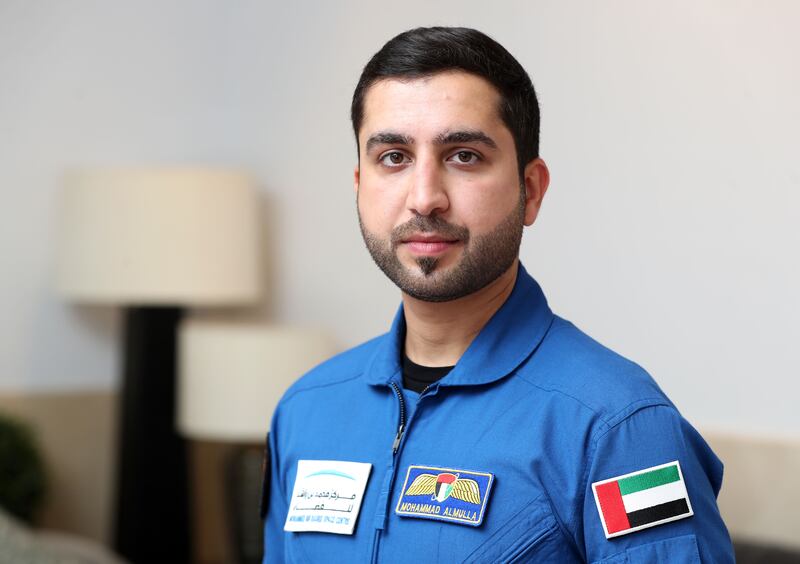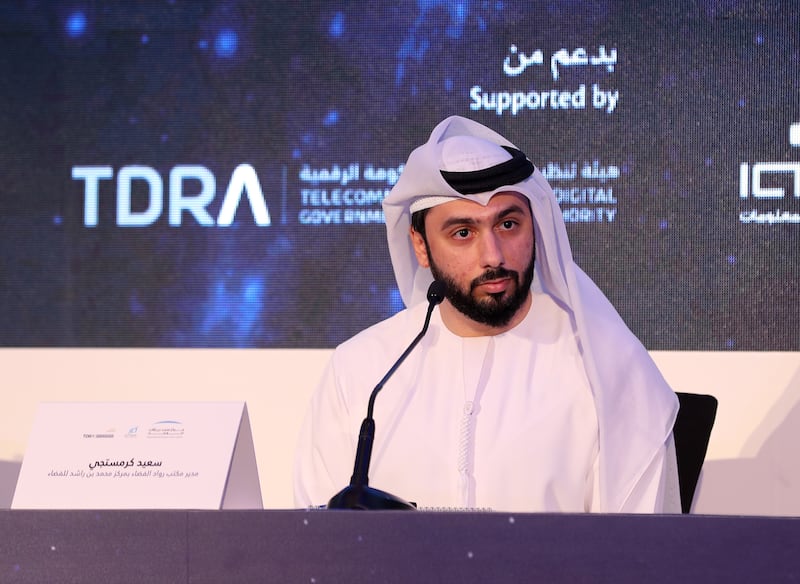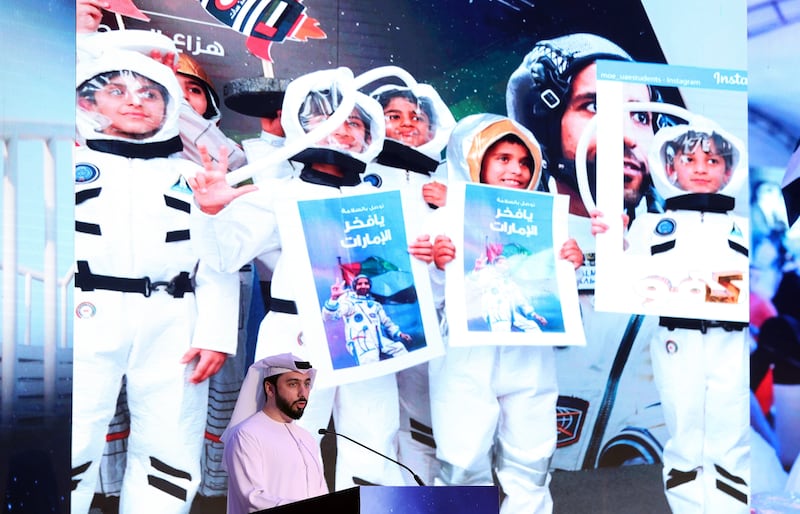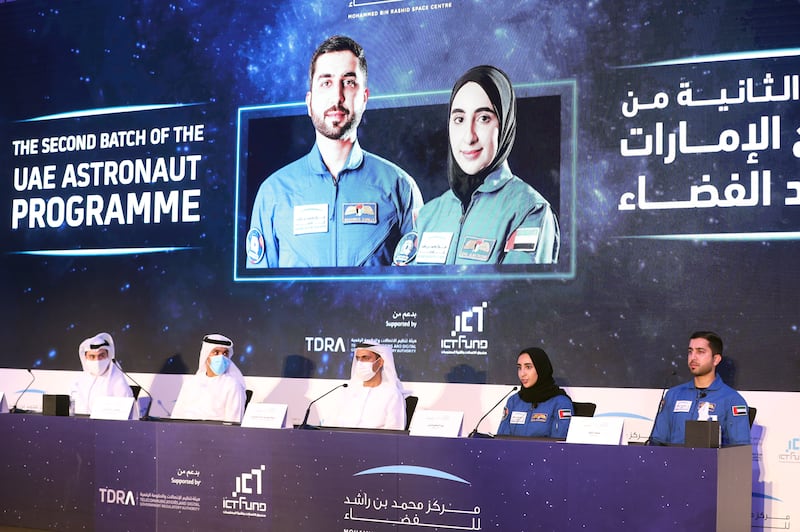The two Emiratis shortlisted for eight months in a Mars mission simulator are making final preparations for the task that requires them to live in almost complete isolation.
Abdullah Al Hammadi, 35, and Saleh Al Ameri, 31, are ready for the mission, but only one will be chosen to spend months with an international crew of six people inside Moscow's NEK centre. The other would be a backup.
The project – Sirius 20/21 – will measure the psychological and physiological impact of extreme environments, such as space travel, on humans.
The crew will conduct more than 60 experiments and the project will help in the planning of long-term flights into space.
"I think the thing we will miss the most will be our family and friends, but we will try to stay in touch with them in our free time,” Mr Al Ameri said.
He spoke at an online press conference on Sunday, a day after the second anniversary of Hazza Al Mansouri becoming the first Emirati in space.
The “analogue astronauts” on the project would be able to communicate with the outside world via emails and video messaging, the conference was told.
Analogue astronaut is the term used for people taking part in such simulations.
One of the most significant challenges for the Emiratis has been adapting to life in Moscow, Mr Al Hammadi said.
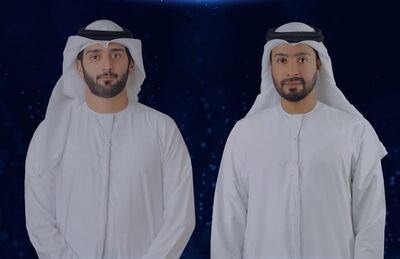
“We’ve had to learn Russian, and it’s a completely different environment for us here in Moscow to work with so many people from various nationalities,” he said.
The project’s science lead, Shaikha Al Falasi, said the experiments over the course of the mission’s eight months could have crucial implications for the future of long-term space missions.
“It’s going to tell us a lot about how the body reacts during such situations both physically and mentally,” she said.
“Just look at Covid-19, when people were only isolated for a few weeks and the impact it had on people.”
Many nations have put scientists and astronauts through isolation tests for space travel.
A European Space Agency flight crew experienced 18 months of isolation in a sealed device in a Moscow suburb between 2007 and 2011.
The crew was exposed to stress tests, including a complete communications blackout.
In 2017, Nasa placed six astronauts in a dome in Hawaii which simulated the conditions of life on Mars.
They were given supplies, including canned tuna and powdered cheese, and wore sensors to measure voice levels and their proximity to others.
This enabled researchers to collate data on whether the astronauts were arguing or avoiding each other.
The UAE’s involvement with the Sirius Mission will play an integral role in gathering data for the country’s plans to build a colony on Mars by the year 2117.
“The mission of simulating life in space is of great importance, as it will enable us to ensure the safety and health of astronauts during long-term space exploration trips,” said Adnan Al Rais, Mars 2117 programme manager for Mohammed Bin Rashid Space Centre (MBRSC).
“This mission will not be limited to the Mars 2117 project, but will cover the entire Emirates Astronaut Programme, to include manned missions that our astronauts will carry out in the future as well as other ambitious space programmes as envisioned by our leaders.”
Some universities in the UAE will offer experiment ideas for the Sirius mission.
“With the announcement of the start of the Sirius mission in November, we at the MBRSC were keen to select and equip our astronauts according to strict mission protocols based on standards established with our international partners,” said Yousuf Hamad Al Shaibani, director-general, MBRSC.
“They will carry out some of the experiments presented by some universities in the UAE as part of our agreement with the scientific community in the country.”

